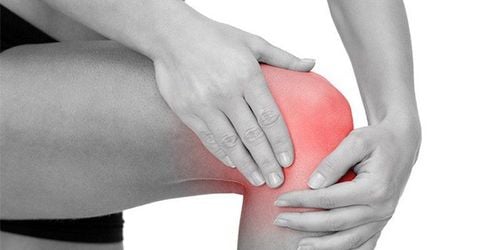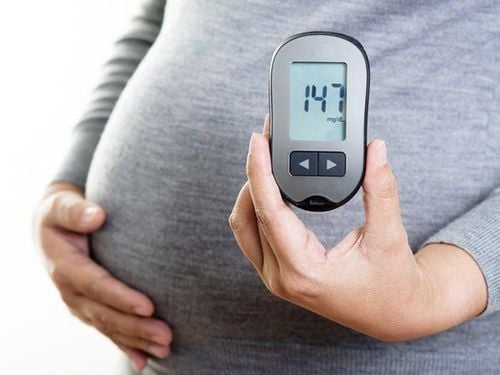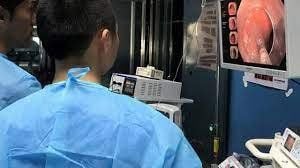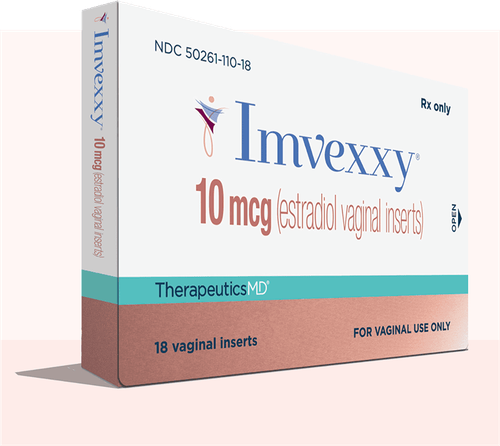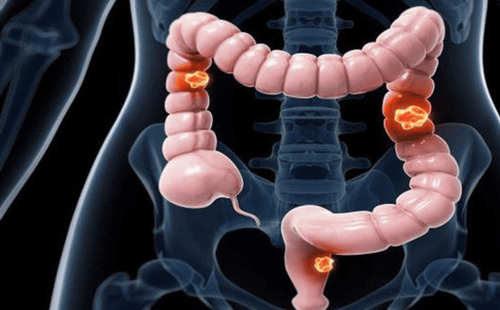This is an automatically translated article.
The article is professionally consulted with Master, Doctor Le Nhat Nguyen - Doctor of Obstetrics and Gynecology - Department of Obstetrics and Gynecology - Vinmec Danang International General Hospital.Entering the age of 65, women often face many health problems. For screening to prevent dangerous diseases, as well as early detection for timely treatment of health problems, women aged 65 should have the following tests.
1. Measure bone density to screen for osteoporosis.
Osteoporosis, also known as brittle bone or spongy bone disease, is a phenomenon in which bones are continuously thinned and the density of the bone substance is gradually thinning, which makes bones more brittle, vulnerable and prone to fracture. suffered a minor injury. Osteoporosis is a major cause of fractures in postmenopausal women and the elderly. It is recommended that patients have their bone density measured every two years starting at age 65, unless other health risk factors are present. At this time, depending on the condition of the disease and related problems, the specialist will appoint a new frequency to measure bone density.2. Cervical cancer screening
Cervical cancer is the third leading cause of cancer death among women, after breast and ovarian cancer. To do this test, the specialist will take a sample of cervical cells to check for changes that can lead to cancer (Pap test); This test may be ordered in addition to the HPV test for women 30 years of age and older (combined testing). Particularly for women 65 years old, it is recommended to have the Pap test and HPV test at the same time every 5 years, or you can choose to have each Pap test every 3 years. Women over 65 years of age can discontinue cervical cancer screening if there is no history of moderate or severe cervical dysplasia or cervical cancer, and if you have three negative Pap test results. consecutive or two negative combined test results in a row within the past 10 years, with the most recent test performed within the last 5 years.3. Clinical breast examination
Breast cancer is a malignant disease with a rapid growth and metastasis, however, breast cancer is easy to detect and treatable if detected at an early stage. Women aged 65 and over are advised to see their obstetrician-gynecologist annually for screening, and early detection of breast malignancies improves the prognosis for this type of cancer.
4. Mammograms
Mammography is a diagnostic imaging procedure that uses low-intensity x-rays to shine into the mammary gland tissue to obtain images of the mammary glands. This method helps to detect abnormalities and tumors at an early stage even when the patient has not yet felt and touched. With breast cancer, this makes a lot of sense because the earlier it is detected, the higher the chance of successful treatment. Mammography has been shown to be effective in the early detection of breast cancer, especially ductal carcinoma in situ, ie, not invasive. With this stage, the possibility of complete cure is very high and in most cases it is possible to have breast-conserving surgery for the patient. Women 65 and older should have a mammogram every year. Age 75 and older, talk to your specialist about whether to continue having mammograms and how often.5. Screening for colorectal cancer
Colorectal cancer is one of the most common cancers in the world. Currently in the world there are about 1.8 million new cases and more than 800,000 deaths each year. In Vietnam, each year about 8,000 new cases of colorectal cancer are detected.Currently, thanks to new innovations in healthcare technology, there are many very effective methods of colorectal cancer screening being applied, including:
Colonoscopy is prioritized to be performed every 10 years
Other measures include the following tests:
Annual Stool Bleeding Test (FOBT) or stool immunohistochemistry with high cancer sensitivity. Flexible sigmoidoscopy every 5 years Contrast radiographs (double contrast barium enema) every 5 years Computed tomography every 5 years Stool DNA testing (no determine time).
6. Diabetes Test
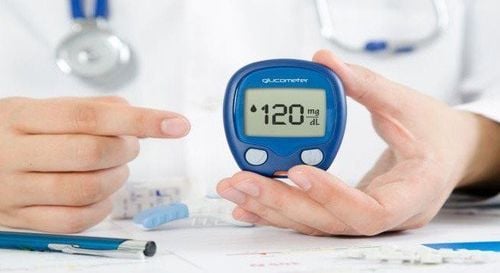
Women aged 65 are recommended to have a blood test to measure the amount of sugar present in the blood, which is the body's main source of energy, Because high sugar levels can be a sign of diabetes. This test should be done every 3 years.
7. Hepatitis C . Test
Hepatitis C is an infection caused by the hepatitis C virus, which is contagious and can lead to serious long-term consequences. The hepatitis C virus is spread by direct contact with the blood of an infected person, by sharing needles or by sharing household items that have come in contact with blood. A baby can be infected during delivery if the mother is infected with the hepatitis C virus. It can also be spread through unprotected sex, but it is more difficult to spread. Casual communication is not a route of hepatitis C transmission.People at high risk should be tested for the hepatitis C virus, including:
All adults born between 1945 and 1965 People who are or have ever used illegal drugs in the form of injections People who received clotting factors before 1987 Patients who are or have been on dialysis HIV patients Patients with abnormal liver enzyme test results Blood transfusion recipients or organ transplant prior to 1992 Patients who received blood transfusions from people who were later found to be hepatitis C virus positive Healthcare workers who may have been exposed to hepatitis C positive blood (eg, people with needles used by someone with hepatitis C) Children of mothers infected with hepatitis C virus.
8. Blood fat test kit
High blood fat is a common disease caused by an unscientific diet and unhealthy lifestyle. Most people with high blood cholesterol have no obvious symptoms, they will develop silently in the body. So the only way to know how high blood fat is is to have a blood test. Women aged 65 should have a blood lipid test every 5 years. In case there is an abnormality of these blood fat indicators, it should be handled early to avoid more serious consequences. Blood lipid test kit includes:Cholesterol Total HDL Cholesterol (good) LDL Cholesterol (bad) Triglyceride.
9. Thyroid hormone
The thyroid gland is an important endocrine gland, and the largest in the body, with roles such as:Enhance metabolism, stimulate sexual growth. Stimulates heart activity, enhances contraction. Affects the activity of the gonads and mammary glands. Increases heat production, increases blood sugar. Stimulates the development and perfection of the nervous system. To check thyroid function and detect related conditions early, women 65 years of age should have this test every 5 years, including:
Thyroid-stimulating hormone (TSH) Free form FT4 ( Free Thyroxine) Free form FT3 (Free Triiodothyroxine) Depending on each patient's condition, a number of other related tests are also indicated to support the diagnosis of thyroid disease.
10. Total urinalysis

Urine pH White blood cells Nitrite Protein Glucose Ketones (KET_Ketones) Urobilinogen Bilirubin Red blood cells Ascorbic acid Based on these numbers, your doctor will make a diagnosis. about your physical condition and order further testing if needed. Women over the age of 65 are recommended to have a complete urinalysis periodically as prescribed by a specialist.
Please dial HOTLINE for more information or register for an appointment HERE. Download MyVinmec app to make appointments faster and to manage your bookings easily.





